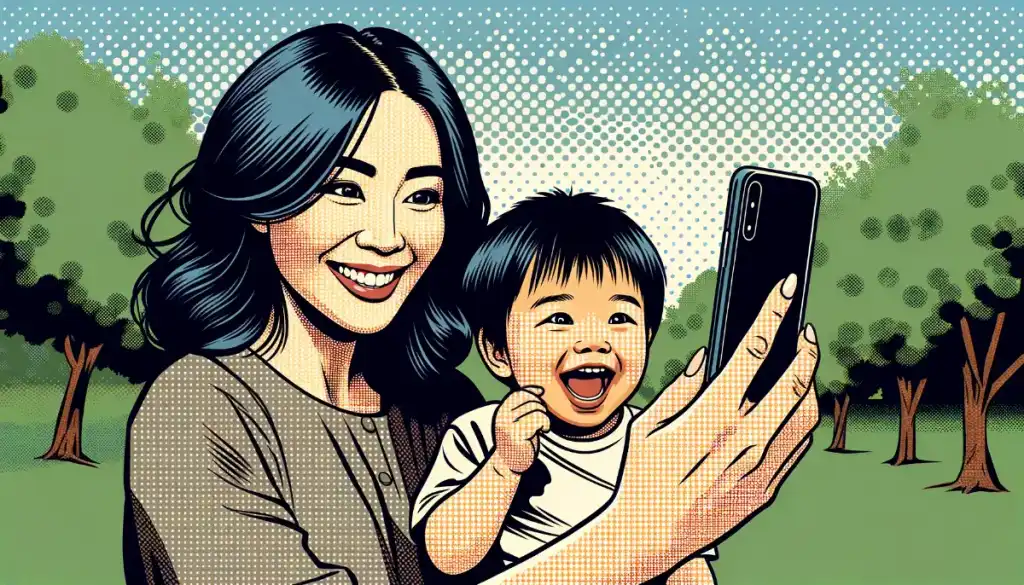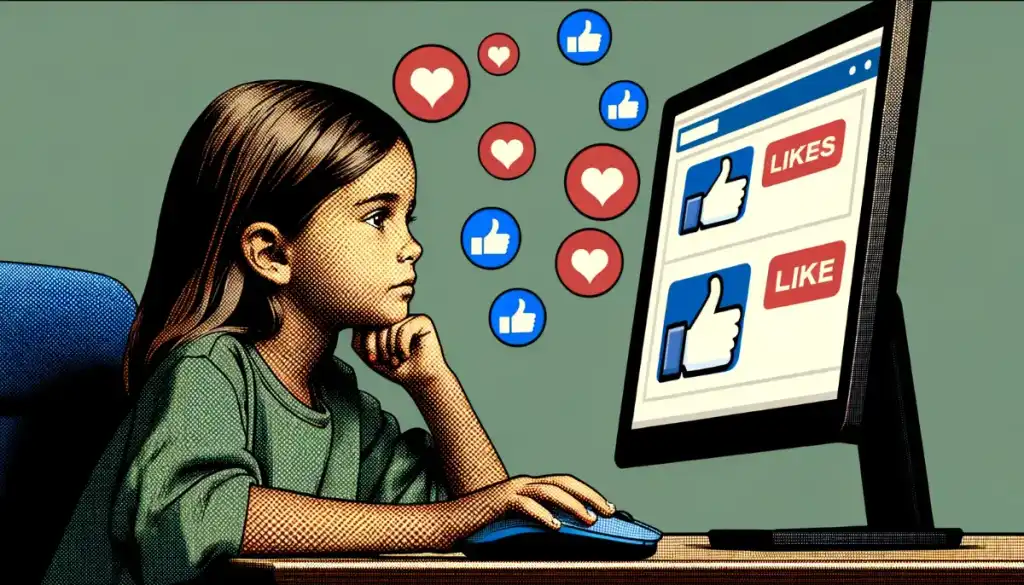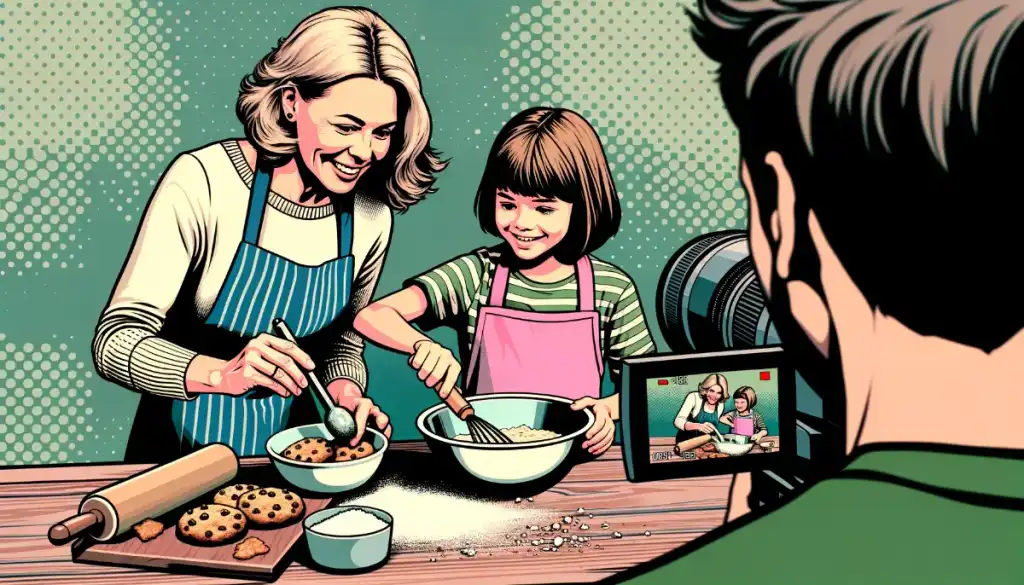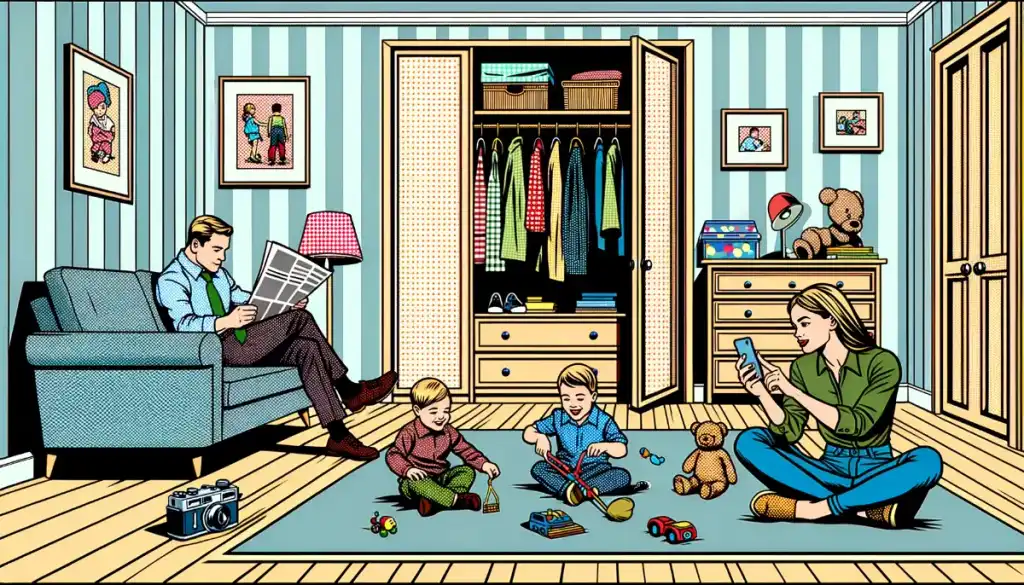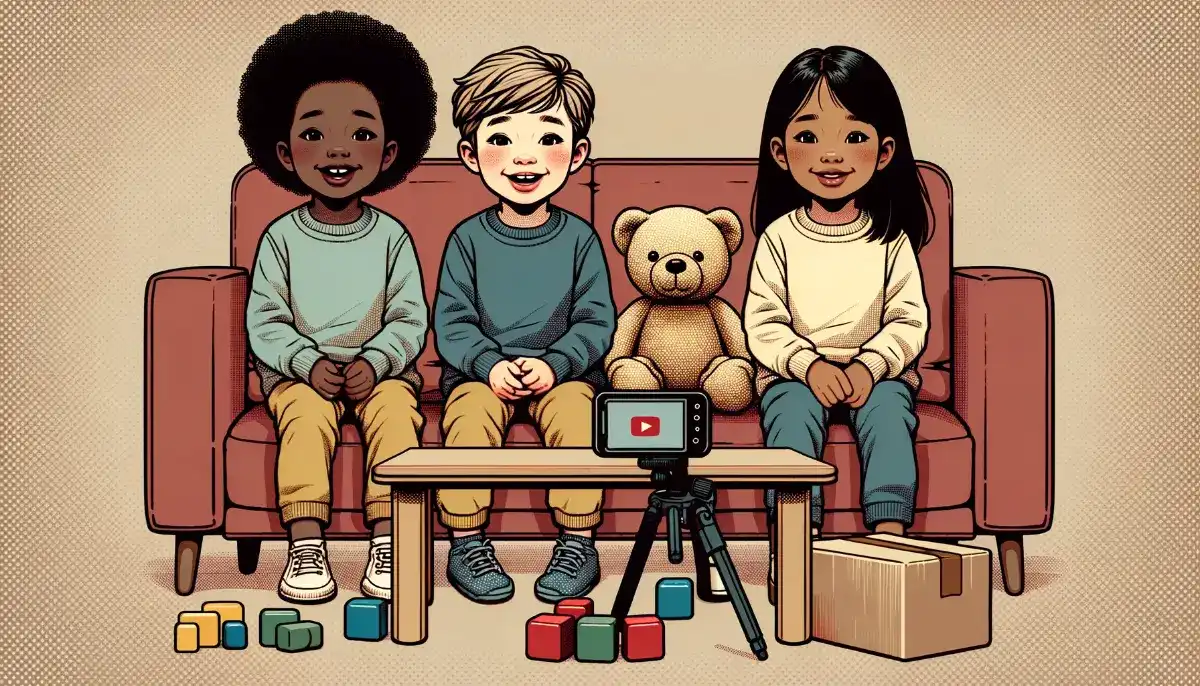
The Price of Fame: A Critical Look at Kidfluencers
Kidfluencers are Gen Alpha kids with a strong social media influence over their peers. The concept raises concerns about privacy, exploitation, and integrity. Social media popularity has given rise to an industry where parents manage their child influencers, raking in impressive incomes through branded content and sponsorships. While this may seem like fun and games, a closer look reveals a dark underbelly to kidfluencing.
Challenges and Risks
No Consent to Share Lives Online
Most kidfluencers[1] are enrolled in the game before they can walk or talk. They have no say in whether intimate details and images from their childhood are broadcast to millions of strangers online. This complete lack of consent should give us pause.
As social media exploded, norms changed rapidly about what was acceptable to share online. Parents enthusiastically posted about pregnancies, births, first days of school, potty training mishaps, temper tantrums, and more. But today's toddlers will grow into teenagers and adults who must live with the consequences of their digital footprint. Kidfluencers' entire childhood has been commercialized without their permission.
This could seriously harm Gen Alpha in the future. A digital footprint is difficult to erase. Details shared online can be taken out of context, emerge in background checks for jobs and university applications, or resurface to cause personal embarrassment. Kidfluencers also face risks like identity theft if too much personal information is revealed. They may struggle with boundaries and privacy norms after growing up overshared by adults.
Vulnerable to Predators and Cyberbullying
In addition to future problems, kidfluencing raises immediate safety issues. Young internet stars are prime targets for child predators looking to make contact, stalk, or groom victims. High-profile kidfluencers also inevitably face significant cyberbullying, given the jealousy and vitriol that fame tends to attract.
Negative comments about physical appearance can be especially damaging to kids in their developmental years. The impacts of cyberbullying and online harassment on mental health are well-documented. Parents cannot fully protect their children from these risks when intentionally exposing them to the spotlight.
No Child Labor Protections
Critics argue that kidfluencing amounts to child labor without regulations. The massive revenues generated from cute kid content would not be possible without the children doing the entertaining. Yet, kidfluencers lack the protections given to child actors, like limits on working hours, mandatory schooling, and Coogan accounts to shelter their earnings.
In most cases, parents entirely control and profit from the enterprise. They can overwork children to keep feeding the social media beast. Signs of burnout, like tantrums or refusal to make videos, are often captured as content anyway rather than taken as a signal to allow the child a break. Critics worry the line between work and play has been blurred, with parents prioritizing lucrative brand deals over what is healthy for their kids.
Effects on Development
Always being "on" for social media distracts kids from the unstructured play and creativity essential for normal childhood development. Play freely chosen by the child helps build decision-making, collaboration, problem-solving, and other skills. But for kidfluencers, play almost always has predetermined goals set by the parent or a brand.
Developmental psychologists caution that children need space to simply be themselves without meeting adult expectations. Playing only to produce marketable content for parental approval risks impacting self-esteem. It can also negatively affect authentic self-expression and emotions.
Today's constant stream of external validation through sharing photos and videos online rather than enjoying life's small moments may already impact emotional intelligence and the ability to self-regulate for entire generations. The effects could be amplified for kidfluencers, given the intensity of public attention and commercial pressures.
Health Risks
The American Academy of Pediatrics advises against any screen time at all for children under 18 months due to impacts on language development and sleep.[2] Yet baby influencers are promoting products before they have even learned to talk.
Excessive screen time is also linked to obesity, sleep disorders, behavioral problems, impairment in social skills, and less time for vital activities like exercise. Kidfluencers often spend hours a day under bright lights and cameras to produce social media content well over the limits recommended by child health experts. Long-term effects remain unknown.
Parents may believe social media fame is harmless fun, but in their quest for fortune and accolades, they could be sacrificing their children's health and well-being. The years of development are precious and fleeting. Lost developmental opportunities can never be regained.
Social and Psychological Impact
Hyper-Commercialized Childhood
Another cost of internet fame is the loss of innocence and magic in childhood. Play morphs into either product promotion or performative "playbor" for parental vlogs. Every baked good, craft, or trip to the park carries the weight of generating content. Toy choice is influenced not by a child's innate interests but by what sponsors want to promote.
Kidfluencers also grow up in a manufactured environment surrounded by luxury goods dangled by sponsors. Gone are the days of toys arriving on holidays and birthdays alone. This overabundance of products and privileges may negatively impact values and create unrealistic expectations for adulthood.
Research into consumer culture and childhood suggests environments saturated with products and branding can foster materialism and dissatisfaction. When children primarily interact with objects as props and backdrops rather than engaging creatively on their own terms, imagination and resourcefulness can suffer too.
Gender Stereotypes and Self-Image Issues
The types of products promoted by kidfluencers also often perpetuate outdated gender stereotypes. Girls promote makeup, clothes, and beauty products, while boys lean toward action toys and video games.
A constant emphasis on appearance could contribute to self-image issues like eating disorders and body dysmorphia for young influencers. Boy influencers also face pressure to live up to masculine stereotypes. Critics argue that in the quest for likes and swipe-ups, gender stereotypes are being amplified rather than broken down.
Losing Out on Real Relationships
There are also concerns that in pursuing online fame, families sacrifice meaningful real-life connections that require effort and commitment. Prioritizing monetizable content may leave little time for relationships with extended family, family traditions, unphotogenic moments, or just relaxing together offline.
Everything and everyone becomes a possible prop or source of clicks and views. Parents can end up living vicariously through children rather than enjoying life's simple gifts, like watching them laugh, play, and learn without a lens intervening. Loneliness and disconnection may be the steepest price for Generation Alpha.
Responses and Protections
Legislative Action Required
Kidfluencing today operates in a virtually unregulated space. While parents bear much responsibility, governments also have a role in establishing protections for children. Critics argue that updated legislation is needed to close gaps regarding child entertainment and labor laws that never anticipated the kidfluencer phenomenon.
For instance, Coogan laws that safeguard a portion of children's earnings in trust funds could be expanded to apply to kidfluencers.[3] Restrictions could also be imposed on hours spent producing content. YouTube and Instagram need to strengthen age verification and stop algorithms promoting videos featuring minors to predators.
There are no straightforward solutions. Complex questions around labor rights, family privacy, the responsibilities of corporations, and freedom of expression will require nuanced debate. But one thing is clear: real kids with real futures are at risk. For their sake, we cannot simply ignore the rise of influencer culture and hope for the best. The time to discuss protections is now.
The Rising Backlash
Pushing back against the kidfluencer phenomenon is a growing chorus of concerned voices. Child development experts, educators, and mental health professionals are increasingly sounding the alarm about long-term impacts. Even some former kidfluencers have spoken out about feeling exploited or robbed of a normal childhood.
Adamant defenders remain, especially among parents benefiting financially. But skepticism is mounting even among the general public. A recent survey showed over 65% of respondents viewed kidfluencing negatively, agreeing it robs children of privacy and exploits them.
As awareness rises, companies may face pressure to stop using kidfluencers for promotions aimed at children. Crackdowns could also come on brands using underage social media stars to market adult products like cosmetics or luxury goods.
Governments Step In
Some governments have begun responding to public unease. France now requires parental authorization and dedicated revenue accounts for children under 16 earning money on social media.[4] The UK is considering whether influencer marketing should face tighter regulations when targeting youth.
More lawmakers are pushing for updated child entertainer and online privacy laws that account for modern influencer marketing. Calls for age verification requirements, content moderation, Coogan law expansions, and other actions are growing louder. While regulating parenting practices is controversial, the principle of protecting child welfare may justify limited oversight of kidfluencing under child labor laws.
Platform Accountability
YouTube, Instagram, and other platforms enabling kidfluencers also face scrutiny for their role. Critics accuse them of turning a blind eye and profiting from child exploitation.
Proposed remedies include age-gating channels focused on minors, disabling comments on videos with children, providing mental health resources for young creators, and refusing to run ads on content that sexualizes or puts kids at risk. Advertisers could also potentially face boycotts for partnering with controversial kidfluencers.
More platforms are at least demonetizing accounts belonging to minors. However, lax age verification makes it easy to skirt restrictions. Pressure for platforms to verify ages and restrict adult followers of underage accounts continues to grow. But full accountability would require fundamentally rethinking features and algorithms built to maximize watch time regardless of content.
Redefining Values
Rethinking "Success"
Part of the problem is cultural norms equating social media fame with success. Parents feel pressure to help children stand out in a competitive world. But gaining followers or monetizing content should not be the goal.
Rather than obsess over likes, society should reorient values to focus on protecting childhood wonder and fostering healthy development. Quality time with engaged parents, outdoor adventures, in-person friendships, and self-directed play are more likely to help Generation Alpha thrive.
Normalizing Kids' Privacy
Shifting away from excessive kidfluencing requires building a culture that values privacy and consent for children online. Parents must lead by example. Many overshare online without kids' input due to social pressure or hopes of money or fame. However, parents can foster children's autonomy by giving them veto power over shared content as young as possible. Asking a 5-year-old's permission before posting their photo sends the message their preferences and ownership of their image matters.
Some families now use joint kid-parent social media accounts where children have a voice in what personal details are made public. Others have special codes kids can use to request images be taken down. Role modeling consent and thoughtfulness about privacy is vital.
Prioritizing Offline Childhood
Amid intense pressure to optimize shareable moments, parents must be vigilant about preserving offline magic. Traditions like baking cookies together or nightly read-alouds deepen bonds as long as phones stay out of the scene. Local parenting networks focused on non-commercialized activities like arranging playdates or classes can provide community support.
Scheduling regular device-free family time and child-led play reminds parents to experience life rather than constantly document it. When children beg to stop for a flower or puddle on a walk, the healthiest response is leaving the camera behind and joining wholeheartedly in the discovery.
Protecting Innocence
There are no easy fixes for hyper-commercialized childhoods in today's attention economy. But committing to upholding ethics, kids' autonomy, and well-being in our digital lives is a start.
Children only get one shot at an authentic, magical childhood. That is something no amount of money or followers can buy back. Prioritizing child welfare over fame means occasionally asking - and answering - the hard questions when tempting opportunities arise. If we instill those values in the young, the next generation will be equipped to make wise choices about their own privacy, work, and self-worth as they grow.
Final Thoughts
Kidfluencing may seem a harmless byproduct of the social media age. But its rapid growth has outpaced ethical checks and balances. The blatant commercialization and loss of privacy threaten childhood innocence and create potentially lasting harm.
When the well-being and rights of society's most vulnerable members are at stake, bold action becomes imperative. Parents, lawmakers, and society must reflect on hard truths about the costs of internet fame. Otherwise, we may end up sacrificing entire generations on the altar of clicks, shares, and glittering ambition.
